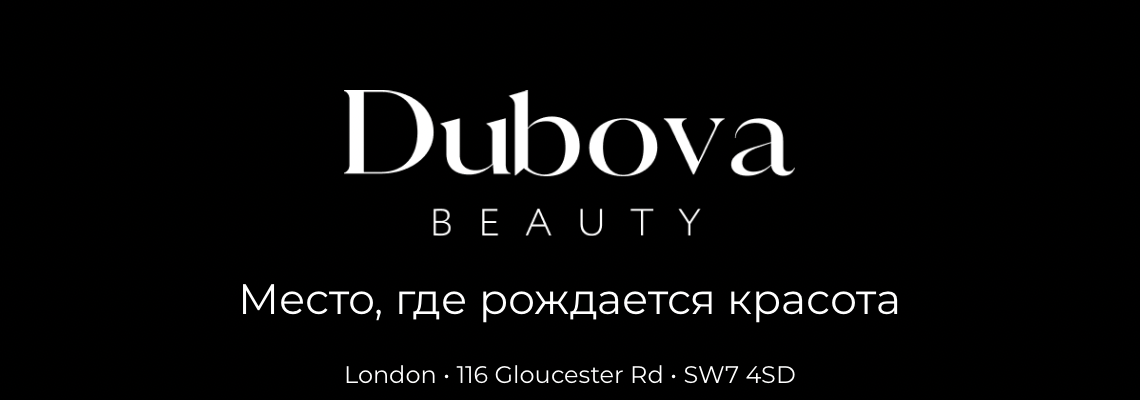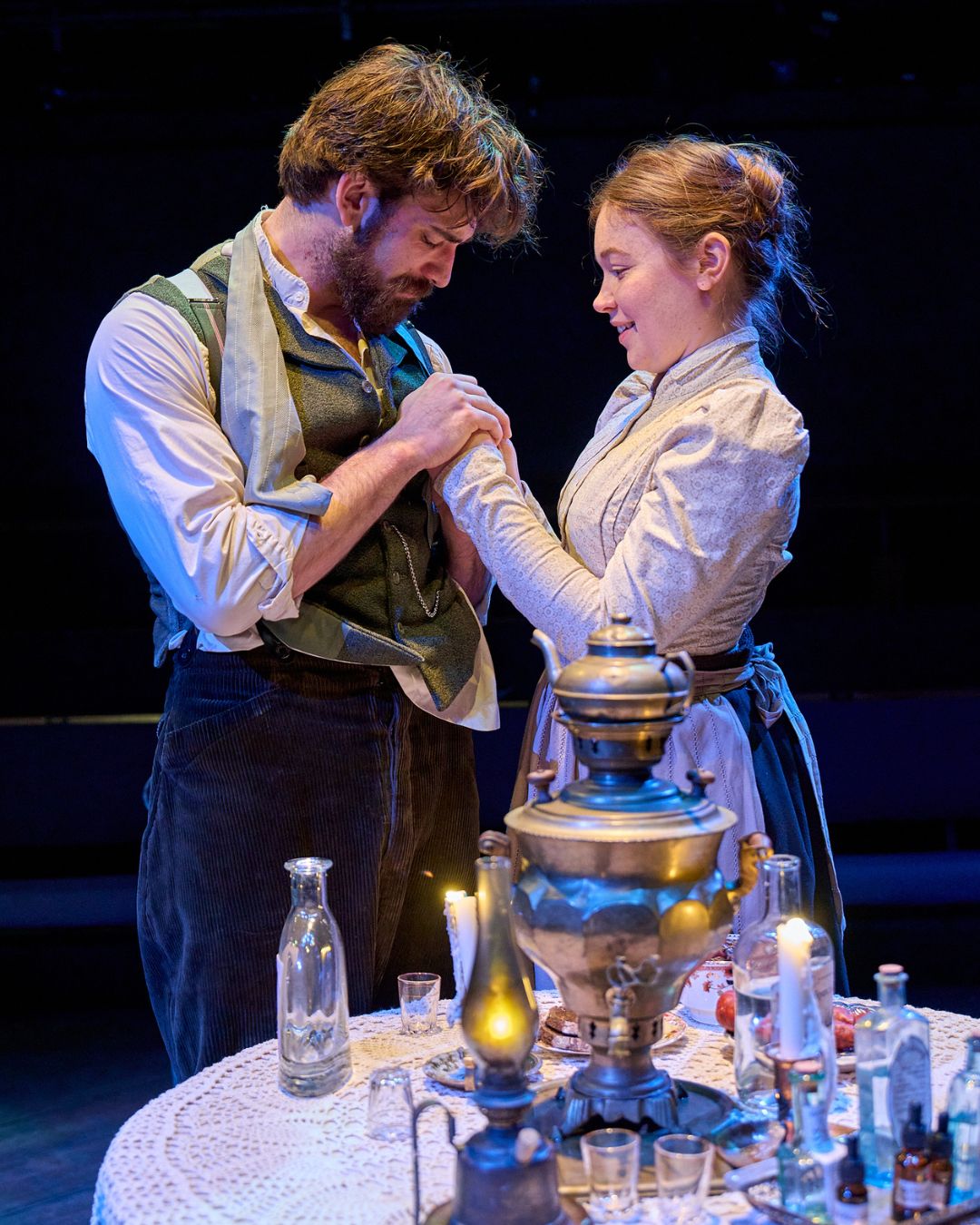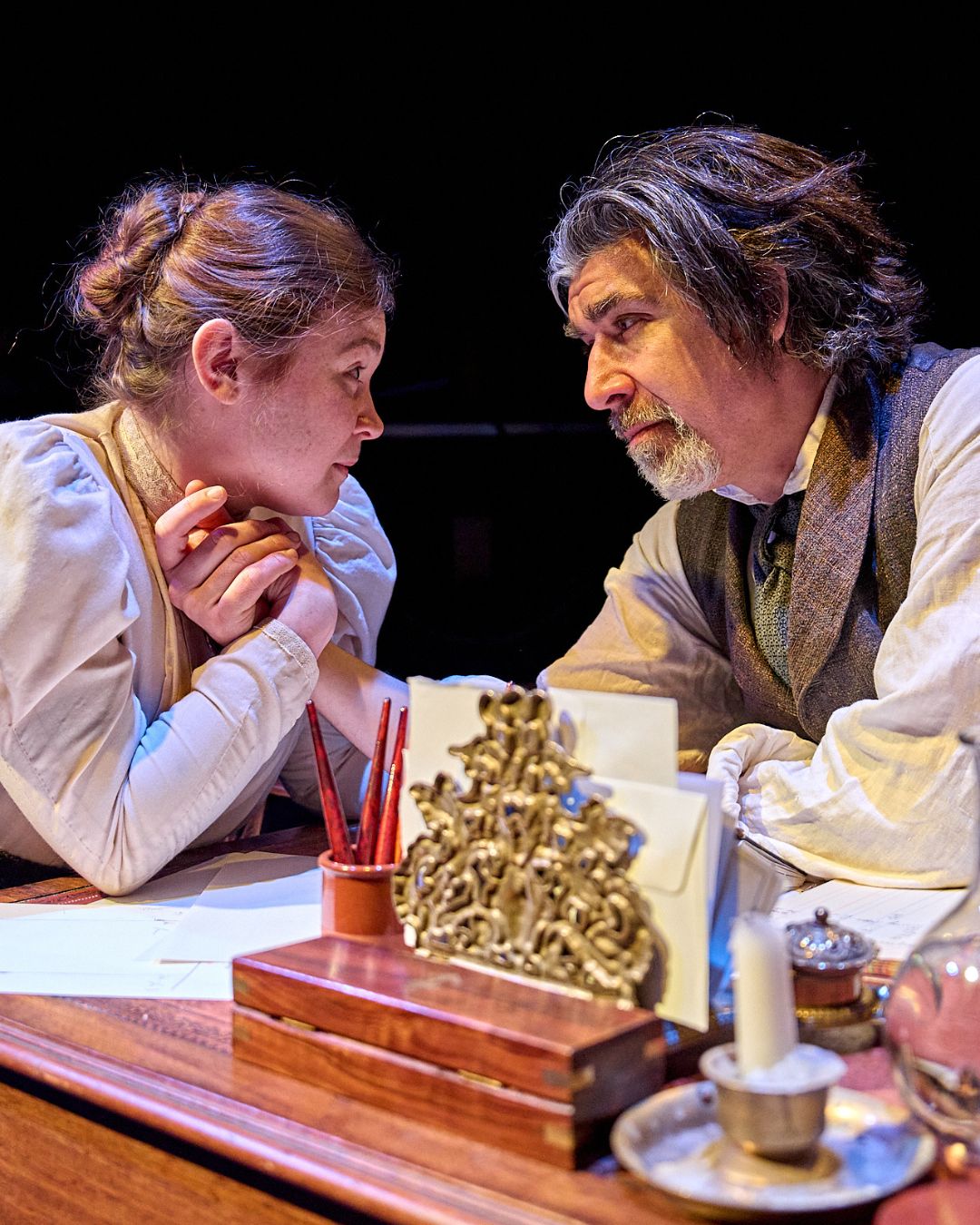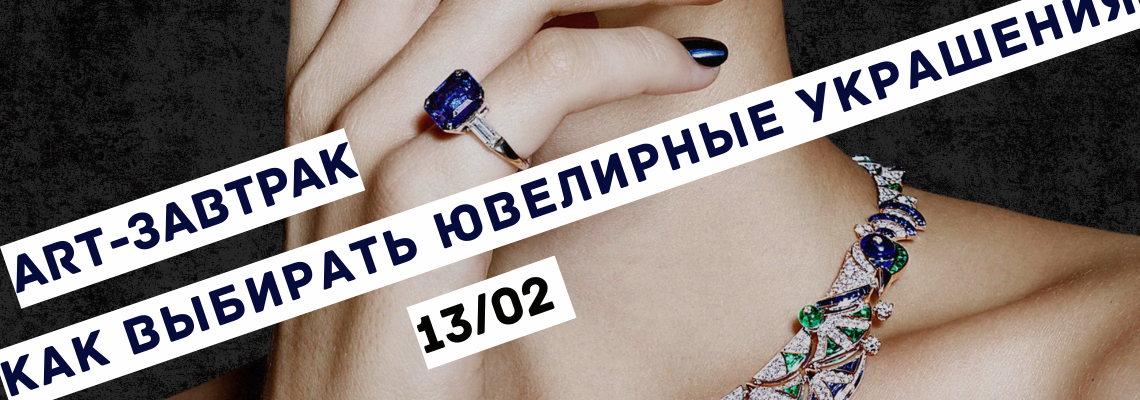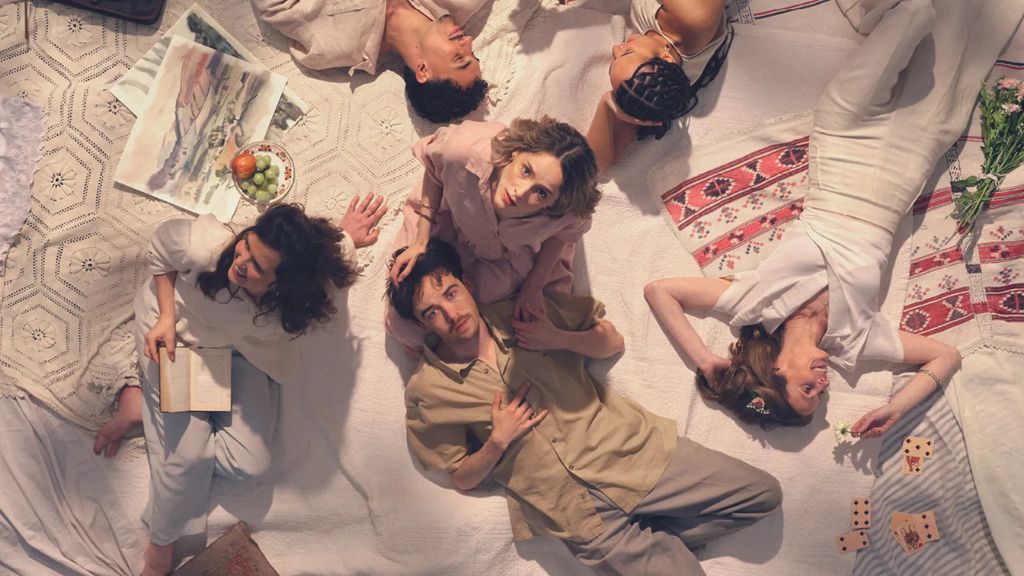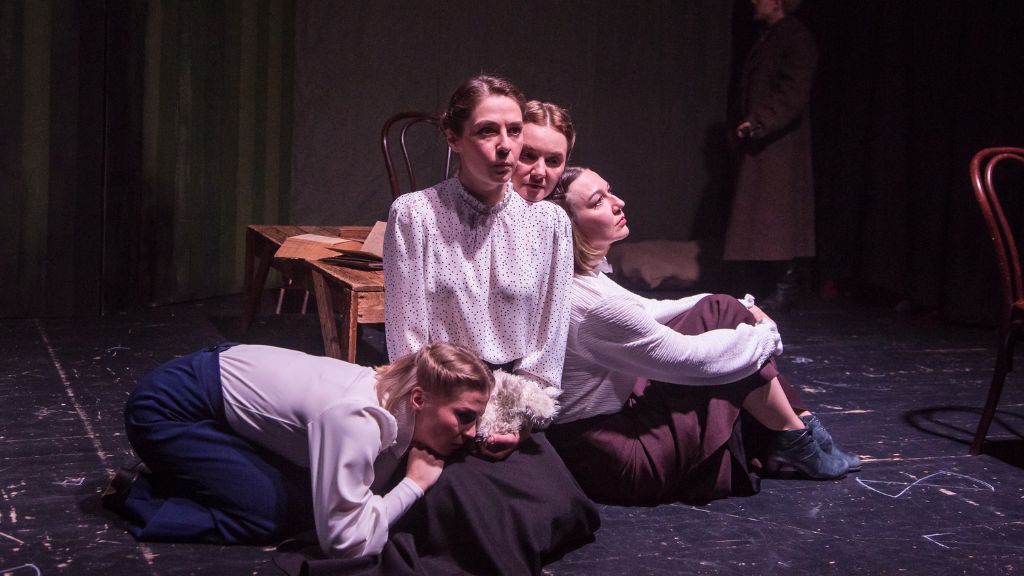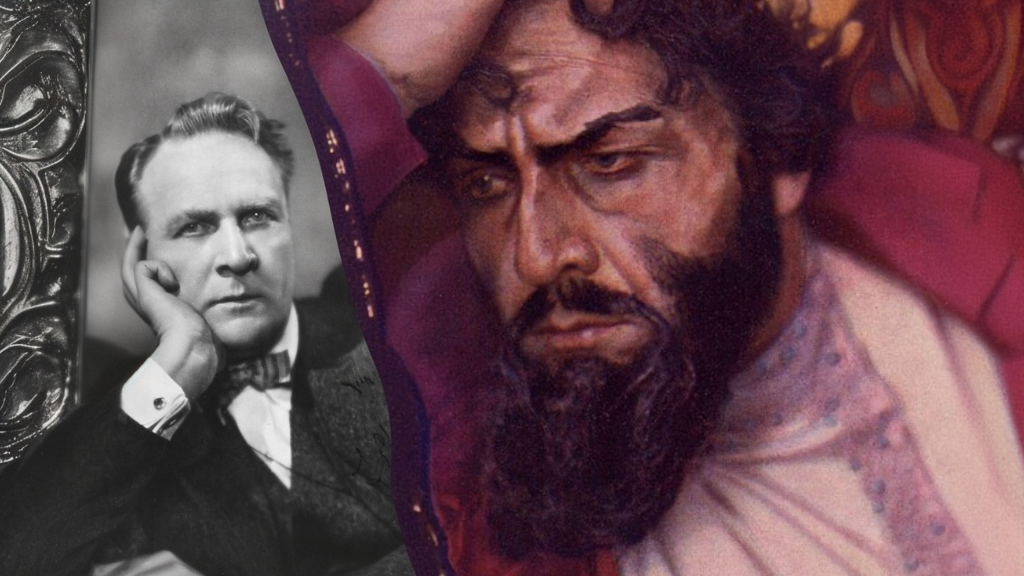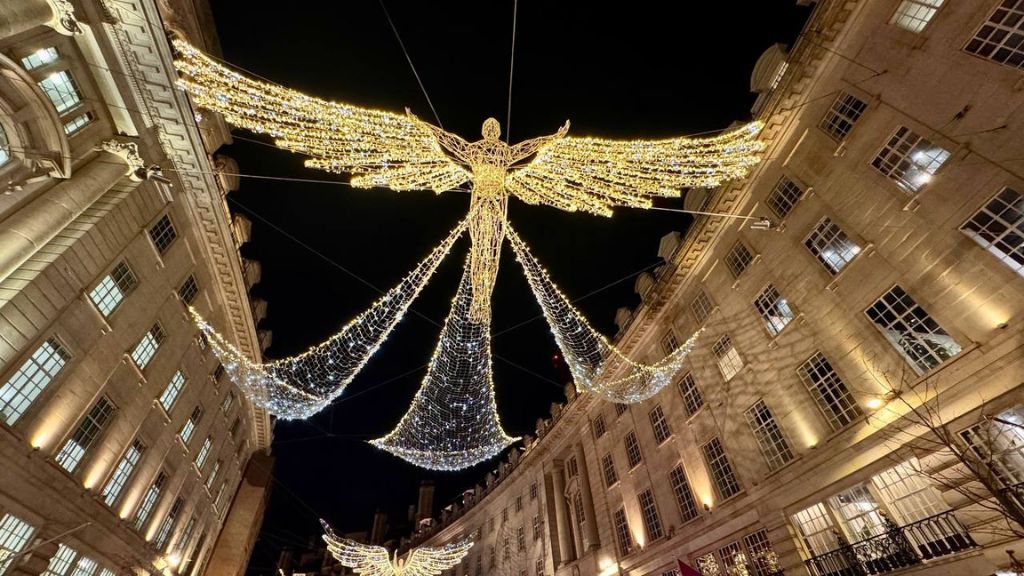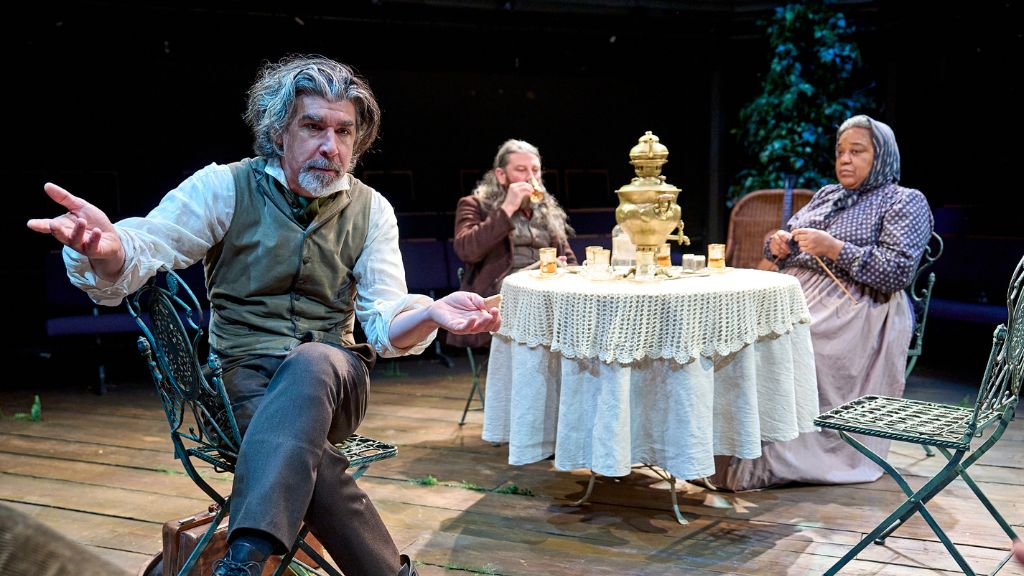
A British Perspective on Russian Classics: James Lance as “Uncle Vanya”
In the small Orange Tree Theatre in Richmond (London), a production of Uncle Vanya is currently running. This isn’t the first recent rendition of Anton Pavlovich Chekhov’s classic “Uncle Vanya.” Thus, it was very interesting to go and compare the approach, and once again delight in the fact that the British respect the work of the Russian classic enough to frequently stage it. Margarita Bagrova, Afisha.London magazine, attended the show and is sharing her impressions.
It might be best to start with the fact that this is a Trevor Nunn production, a director who has staged one or two hundred major productions over his lifetime, demonstrating a commitment to smaller venues that require a particularly meticulous approach to staging.
Consider the Orange Tree Theatre – a very intimate theatrical space where the audience sits around the stage, and the actors are just a metre away from the spectators in the front row, practically stepping on their feet. Actors must move so as not to constantly have their backs to a section of the audience. This minimalist space offers a distinct advantage: these stiflingly coexisting characters, who drink, dance, argue, and kiss, are within a touch away. It’s as though the viewer has simply passed by a garden and paused at the fence to sneak a peek at what’s happening next door.

Photo: Manuel Harlan
Trevor Nunn is known for giving life to theatres such as The Donmar Warehouse and The Loft and has done extensive work for the intimate Jermyn Street Theatre. This is his first time working at the Orange Tree Theatre, but it’s already a success – tickets for the production are nearly all sold. In his career, Nunn has produced several of Chekhov’s pieces: Three Sisters, The Cherry Orchard, The Seagull, and even worked on Ivanov, despite considering Chekhov the second greatest dramatist after Shakespeare, of course. Shakespeare is the undeniable love of Trevor Nunn, as he directed all 37 of his plays during his 18 years as the Artistic Director of the Royal Shakespeare Company from 1968 to 1986. He was also the director of the National Theatre from 1997 to 2003. He’s worked a lot with musicals (including Webber’s) and even opera, and some may recall his work on “Katya Kabanova” at the Royal Opera House.
Read more: Exploring Malevich: Locations and Insights into His Revolutionary Art
At one point, the three longest-running shows of all time—”Cats,” “Starlight Express,” and “Les Misérables”—were his, and since that time, he has transformed as a theatrical director. On the flip side, no doubt, many would prefer he not spend all his time on Shakespeare and Chekhov and instead devote himself entirely to musicals.
And now, at 84, Trevor Nunn returns to Chekhov, his heart seemingly torn asunder with love for the Russian maestro. He remarks, “This masterpiece, created by an exceptionally inspiring Russian, reminded me to dedicate this staging to another inspiring Russian… Alexei Navalny.”
- Astrov (Andrew Richardson) and Sonya (Madeleine Gray). Photo: Manuel Harlan
- Sonya (Madeleine Gray) and Uncle Vanya (James Lance). Photo: Manuel Harlan
A small garden terrace in the late summer… The thoughtfully designed set instantly transports the average viewer into a Russian village, but for some, it casts a shawl of nostalgia: there’s a knitted doily on the round table, a samovar from which strong tea is poured into glass cups, a charming tray with a small vase holding garden flowers, and a bench under the shade of a tree… Visually, it’s immediately apparent that this Uncle Vanya leans more towards the original than the recent adaptation titled Vanya, in which Andrew Scott took the lead.
Characters from the play, exactly eight as required, step onto the stage one after the other: Serebryakov, Uncle Vanya, Elena, Sonya, Dr. Astrov, Telegin, the grandmother, and the nanny… The star of the production is the actor playing Uncle Vanya—James Lance. He is depicted on all the main posters for the production and visually embodies the image of a mature, middle-aged man, slightly wearied, where even his hair speaks of the lostness and disarray of his life. James Lance could be seen in the popular series Ted Lasso, The Famous Five, Black Mirror, and many other theatrical and film productions.
Read more: Anna Karenina: a Russian classic reimagined in Britain
All attention is captivated by Dr. Astrov, who arrives at the Serebryakov estate and stays for a long time, unwittingly troubling the heart of one young lady (Sonya) and attempting to awaken the affections of another (Elena). He advocates for the ecological conservation of forests, yet simultaneously subjects himself to ruin—a classic Chekhovian existential crisis. Andrew Richardson, seen in Guys and Dolls at the Bridge Theatre, is exquisitely cast in this role: he plays with passion and depth, truly resembling the Astrov that Chekhov might have envisioned.

Photo: Manuel Harlan
The same cannot be said for the role of Uncle Vanya – James Lance, magnificent in his own right, seems a tad too hysterical and even debauched at times, which is more than a man of his status would have allowed himself in the 19th century. His slight mismatch is complemented by actress Madeleine Gray, playing Sonya: very good and appropriately passionate for her role, but somewhat lacking the profound Chekhovian essence and the necessary theatrical rupture.
Surprisingly well-cast is Lily Sacofsky as Elena—a young actress who has already graced the stage in “Three Days in the Country,” based on Turgenev, at the National Theatre Lyttelton. She convincingly portrays the Chekhovian character, fitting snugly into the role of the bored professor on pension, Serebryakov: aged, the only man among them sporting a fashionably coiffed hair befitting his status, he seems to rise above the mundane problems and maelstrom of fervent emotions. He is unable to live within the stifling claustrophobia of the provincial estate.

Uncle Vanya (James Lance), Elena
(Lily Sacofsky) and professor Serebryakov (William Chubb). Photo: Manuel Harlan
The British have a profound affection for staging Chekhov’s works. The audience members around me, averaging in their seventies, shared their impressions with joy. They reminisced about the productions they had witnessed over the past 10 to 20 years in both grand and fringe theatres, always speaking with fondness for Chekhov, Anton Pavlovich.
Read more: Antonio Canova’s ‘Three Graces’: Crafting a Neoclassical Masterpiece
During the performance, the sound of “Kalinka” and “Dark Eyes,” the noise of rain and thunder, the clatter of hooves, the clinking of glasses, often just simple vodka tumblers… and the chirping of cicadas filled the air. The audience chuckled and empathized with the characters, and with Chekhov himself (as if to say “My diagnoses – you swallow with envy”), reinforcing the timeless relevance of Chekhov for the British audience. Nonetheless, the indelible feeling of ancient Russian melancholy that Russian home theatres can invoke seems elusive in British renditions. It appears one must be thoroughly Russian to the core to grasp the deep-seated sense of despair, a melancholy of inexorability, that Chekhov delicately places, like a golden egg, at the end of his works.
“Uncle Vanya” is on at the Orange Tree Theatre in Richmond until Saturday 13 April.
Cover photo: Manuel Harlan
Read more:
Yehudi Menuhin in London: prodigy, violinist and goodwill ambassador
Composer Alexander Scriabin: a journey from earthly melodies to celestial aspirations
Ivan Turgenev’s Sojourn in London: a literary ambassador between the Russian Empire and the West
SUBSCRIBE
Receive our digest once a week with quality Russian events and articles

